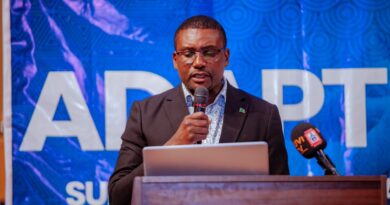Zambia’s 2025 National Budget: Achievements, Gaps and Next Priorities
The 2025 National Budget valued at K217 billion, was presented as a key strategic tool to drive Zambia’s macroeconomic stability, foster fiscal consolidation and trigger inclusive growth.
Zambia’s 2025 fiscal plan sought to expand revenues to about 21.3% of GDP, reduce the fiscal deficit toward 3.1% of GDP, and protect priority spending in social sectors, agriculture and infrastructure.
Budget Outcomes to Date
Zambia has recorded steady progress in stabilizing the economy, with GDP growth projected to land at just around 6% in 2025, strongly driven by mining, agriculture recovery and services.
It is important to note that revenue mobilization on its front, has improved but remains slightly below the ambitious target that were set, creating funding pressure and leading to reprioritization of some spending lines.
Debt restructuring with most creditors has reduced intensity of risks, but unresolved negotiations with Afreximbank and TDB continue to pose potential challenges.
Social spending in health, education, and social protection has largely been protected, but efficiency and delivery gaps still remain.
Agriculture is recovering after drought shocks, though smallholder resilience and value-chain integration need stronger and further support.
Key Gaps and Risks
Shortfalls in tax collection compared to targets, less performances in both VAT, mineral royalties and grants particularly in first quarter of 2025.
Weak execution of some capital projects due to procurement processes and financing delays.
Continued domestic debt rollover risks, crowding out private credit especially with domestic debts with the maturity demands.
Heavy reliance on external programme support, particularly from the IMF, with strict conditionalities which are sitting with austerity measures of control.
Looking Ahead to the 2026 Budget
For Zambia to build on current gains, the next budget must prioritize:
- Revenue Mobilization : Strengthen tax administration and plug mining revenue leakages rather than relying on rate hikes.
- Capital Spending Discipline: Front-load high-return infrastructure projects in energy, transport, and agro-processing corridors.
- Debt Management : Reprofile domestic debt and finalize external creditor agreements to reduce uncertainty.
- Agricultural Transformation : Support smallholder farmers with value-chain linkages, agro-processing, and climate resilience.
- Social Protection Efficiency : Strengthen targeting of vulnerable households through digital cash-plus programmes and should be balanced up, given the circumstances of electoral demands.
Conclusion
The 2025 Budget has laid out the perfect groundwork for stability and recovery baseline, but Zambia must go further to secure inclusive growth and debt sustainability.
With bold reforms in revenue, debt, tackling cost of living and anchoring productive investments, the 2026 budget can unlock greater economic opportunities for citizens and businesses alike.
The 2026 budget will still have to work on the budget template witnessed in this year except that this fiscal year will strongly interplay in between fiscal discipline and electoral demands.



